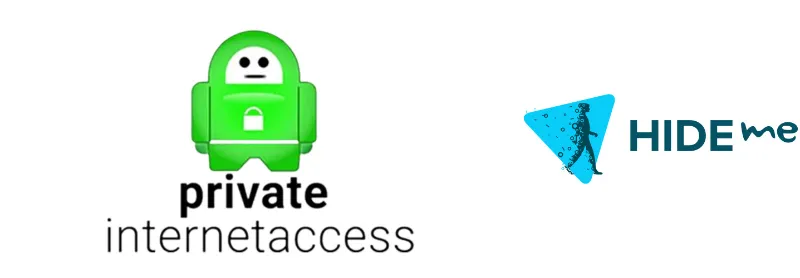In the ever-evolving world of internet browsing, privacy and security have become paramount concerns for users worldwide.
Among the array of web browsers available, Vivaldi has carved out a niche for itself with its unique features and customization options.
But in this digital age, where cyber threats loom large, many users ask, “Does Vivaldi browser have a VPN?”
This blog post aims to delve into this query, exploring the realms of Vivaldi’s privacy features, the importance of VPNs, and how they intertwine to provide a secure browsing experience.
Understanding the nuances of Vivaldi’s capabilities is crucial for tech enthusiasts and anyone who values their online privacy and security.
We’ll explore the intricacies of Vivaldi, compare it with other browsers, and discuss the role of VPNs in enhancing online security.
Whether you’re a seasoned internet surfer or new to the digital world, this post will provide valuable insights into making your online experience both safe and enjoyable.
Fun Fact: Did you know that Vivaldi is not just another browser in the market? It's recognized for its highly customizable interface and user-centric features. Learn more about Vivaldi's unique traits at Is Vivaldi Web Browser Open Source?.
Quick Answer: Does Vivaldi Browser Have a VPN?
To cut straight to the chase, Vivaldi browser does not have a built-in VPN. While Vivaldi prioritizes user privacy and offers various security features, it currently lacks an integrated VPN service.
This means that users looking for VPN functionality must explore third-party extensions or standalone VPN services to pair with their Vivaldi browsing experience.
However, this absence of a built-in VPN doesn’t diminish the overall security and privacy capabilities of the Vivaldi browser.
Vivaldi offers robust privacy controls and customization options, making it a strong contender in the realm of secure browsing.
What is Vivaldi Browser? Understanding Its Features
Vivaldi Browser, often celebrated for its customization and efficiency, stands out in the crowded field of web browsers.
It’s the brainchild of former Opera Software co-founder and CEO Jon Stephenson von Tetzchner, designed to cater to power users and web enthusiasts who crave a more personalized browsing experience.
Key Features of Vivaldi Browser
- Customization: One of the hallmarks of Vivaldi is its deep customization options. Users can tweak and modify nearly every aspect of the browser interface, from the layout of tabs and address bars to keyboard shortcuts and mouse gestures.
- Privacy-Focused: Vivaldi has a strong stance on user privacy. It does not track its users and offers various privacy settings, including ad blockers and tracker blockers, to enhance user security.
- Advanced Tab Management: The browser boasts unique tab management features like tab stacking and tiling, allowing users to group and display multiple tabs in various layouts.
- Built-in Tools: Vivaldi comes with several integrated tools such as a note-taking feature, a screen capture tool, and a sidebar for quick access to bookmarks and downloads.
Comparing Vivaldi with Other Popular Browsers
When compared to mainstream browsers like Google Chrome or Mozilla Firefox, Vivaldi distinguishes itself primarily through its customization capabilities and privacy-centric approach.
While other browsers might offer similar basic functionalities, Vivaldi’s appeal lies in its ability to be tailored extensively to individual user preferences, making it a preferred choice for users who value a personalized browsing experience.
The Importance of VPN in Web Browsing
In today’s digital landscape, where data breaches and online surveillance are common concerns, understanding the importance of a VPN (Virtual Private Network) is crucial for anyone using the internet.
A VPN plays a pivotal role in enhancing online security and privacy.
What is a VPN and How Does it Work?
A Virtual Private Network (VPN) is a service that encrypts your internet connection and reroutes it through a server in a location of your choice.
This encryption protects your data from hackers and third parties, making your online activities more secure and private.
- Encryption: A VPN encrypts the data you send and receive, which helps protect sensitive information from cyber threats.
- Anonymity: It masks your IP address, making your online actions more anonymous and less traceable to you.
- Access to Restricted Content: VPNs can bypass geographical restrictions, allowing you to access content that may be blocked in your region.
Benefits of Using a VPN
- Enhanced Security: VPNs protect you from various cyber threats, including hackers on public Wi-Fi networks.
- Privacy Protection: They prevent your internet service provider (ISP) and websites from tracking your online activities.
- Safe Remote Access: A VPN allows you to access your network while traveling or working remotely safely.
Does Vivaldi Browser Have an Integrated VPN?
As we’ve touched upon earlier, Vivaldi Browser does not come with an integrated VPN. However, this doesn’t mean that security and privacy are compromised.
Vivaldi offers a range of features and settings that contribute to a secure browsing experience.
Vivaldi’s Security Features
- Ad and Tracker Blocking: Vivaldi includes built-in tools to block unwanted ads and trackers, enhancing both privacy and browsing speed.
- Encrypted Sync: The browser allows you to synchronize your data across devices securely, with end-to-end encryption for your passwords, bookmarks, and other browser data.
- Privacy Settings Customization: Users can customize their privacy settings, including managing cookies and site data, to suit their privacy needs.
How Vivaldi Ensures User Privacy
Vivaldi takes a unique approach to user privacy:
- No User Profiling: It doesn’t track or profile users, which is a common concern with some other popular browsers.
- Transparent Policies: Vivaldi’s clear privacy policies set it apart, ensuring users understand how their data is handled.
While Vivaldi doesn’t have a built-in VPN, users who need this functionality can easily add it through third-party VPN extensions or services. This flexibility allows users to enhance their security as per their individual needs.
Alternatives to Vivaldi’s Security Solutions
Since Vivaldi Browser doesn’t have an in-built VPN, users looking for that extra layer of privacy and security can consider various alternatives.
Integrating a VPN with Vivaldi can be a straightforward process, offering enhanced security, especially when accessing public Wi-Fi networks or dealing with sensitive information.
Best VPN Services for Web Browsers
There are numerous VPN services available that are compatible with Vivaldi Browser. When choosing a VPN, consider factors like security features, server locations, speed, and privacy policies.
Here are some highly recommended VPN services:
- NordVPN: Known for its strong security protocols and large server network.
- ExpressVPN: Offers fast speeds and robust privacy features.
- Surfshark: An affordable option with strong encryption and a no-logs policy.
How to Add a VPN to Vivaldi Browser
Adding a VPN to Vivaldi is typically done through extensions or standalone VPN applications. Here’s a quick guide:
- Choose a VPN Service: Select a reputable VPN provider that meets your security and budget requirements.
- Install the VPN: If the VPN offers a browser extension, you can add it directly to Vivaldi. Alternatively, install the VPN application on your device.
- Connect to a VPN Server: Once installed, open the VPN, log in, and connect to a server of your choice for a secure browsing experience.
By integrating a VPN with Vivaldi, users can enjoy the unique features of the browser while also benefiting from the added security and privacy that a VPN provides.
How to Safely Browse the Internet
In an era where digital threats are increasingly sophisticated, knowing how to safely browse the internet is vital. This is particularly important for users of browsers like Vivaldi, which offers extensive customization but lacks a built-in VPN.
Tips for Enhancing Online Privacy and Security
- Use a Reliable VPN: As discussed earlier, adding a VPN to your Vivaldi browser can significantly enhance your privacy and security.
- Regularly Update Your Browser: Keeping Vivaldi up to date ensures you have the latest security features and bug fixes.
- Be Cautious with Extensions: Only install trusted extensions, as some can be a source of malware or privacy leaks.
- Secure Your Wi-Fi Connection: Always use a secure, password-protected Wi-Fi network, especially when handling sensitive data.
The Role of Browser Settings in Protecting Privacy
Vivaldi’s various settings can be adjusted to further protect your privacy:
- Manage Cookies and Site Data: Restrict or block cookies from websites you don’t trust.
- Use Private Browsing Mode: This mode doesn’t save your browsing history, cookies, or site data.
- Disable Location Tracking: Prevent websites from accessing your geographical location.
Adopting these practices can significantly reduce the risk of privacy breaches and cyber threats, ensuring a safer browsing experience.
Frequently Asked Questions (FAQ)
As we explore the intricacies of Vivaldi Browser and its compatibility with VPNs, several questions often arise. Let’s address some of the most common queries to help you navigate these topics more effectively.
Q1: Can I use any VPN with Vivaldi Browser?
Yes, you can use most VPNs with Vivaldi Browser. While Vivaldi doesn’t have a built-in VPN, it supports third-party VPN extensions and standalone VPN applications. It’s important to choose a reliable VPN service that aligns with your security needs.
Q2: Is Vivaldi Browser safe for confidential browsing?
Vivaldi Browser is designed with privacy in mind, offering features like ad and tracker blocking, encrypted sync, and customizable privacy settings. However, for added security, especially when dealing with confidential information, it’s advisable to use a VPN alongside Vivaldi.
Q3: Are there any free VPNs recommended for Vivaldi Browser?
There are free VPNs available, but they often have limitations such as slower speeds, data caps, and fewer server options. For optimal performance and security, it’s recommended to consider a paid VPN service. If you choose a free VPN, research its security features and privacy policies thoroughly.
Conclusion
In this exploration of Vivaldi Browser and its relationship with VPNs, we’ve uncovered some key insights.
While Vivaldi itself doesn’t offer an integrated VPN, its commitment to user privacy and security is evident through its array of features like ad and tracker blocking, encrypted sync, and customizable settings.
For those seeking additional layers of security, particularly in the form of a VPN, the flexibility to integrate third-party solutions makes Vivaldi a versatile choice.
Remember, the key to a secure online experience lies not only in the tools and services you use but also in being informed and cautious.
Regular updates, sensible browsing habits, and the right combination of browser and VPN can significantly enhance your internet privacy and security.
Whether you’re a casual surfer, a privacy enthusiast, or someone in between, understanding these aspects of web browsing can make a substantial difference in your digital life.
With this knowledge, you’re now equipped to navigate the internet with greater confidence and security using Vivaldi and a VPN of your choice.









